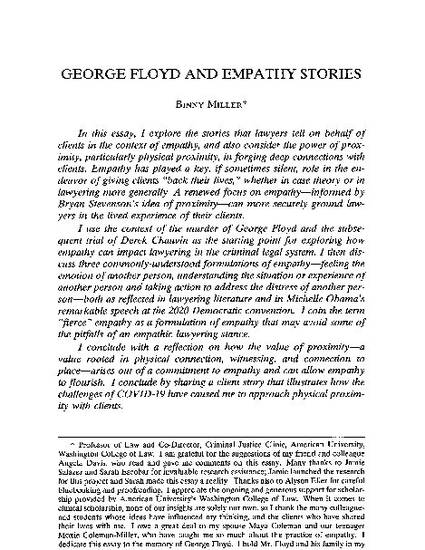
Clinical Law Review
In this essay, I explore the stories that lawyers tell on behalf of clients in the context of empathy, and also consider the power of proximity, particularly physical proximity, in forging deep connections with clients. Empathy has played a key, if sometimes silent, role in the endeavor of giving clients "back their lives," whether in case theory or in lawyering more generally. A renewed focus on empathy-informed by Bryan Stevenson's idea of proximity-can more securely ground lawyers in the lived experience of their clients.I use the context of the murder of George Floyd and the subsequent trial of Derek Chauvin as the starting point for exploring how empathy can impact lawyering in the criminal legal system. I then discuss three commonly-understood formulations of empathy-feeling the emotion of another person, understanding the situation or experience of another person and taking action to address the distress of another person-both as reflected in lawyering literature and in Michelle Obama's remarkable speech at the 2020 Democratic convention. I coin the term "fierce" empathy as a formulation of empathy that may avoid some of the pitfalls of an empathic lawyering stance. I conclude with a reflection on how the value of proximity-a value rooted in physical connection, witnessing, and connection to place-arises out of a commitment to empathy and can allow empathy to flourish. I conclude by sharing a client story that illustrates how the challenges of COVID-19 have caused me to approach physical proximity with clients.
Available at: http://works.bepress.com/binny_miller/20/
